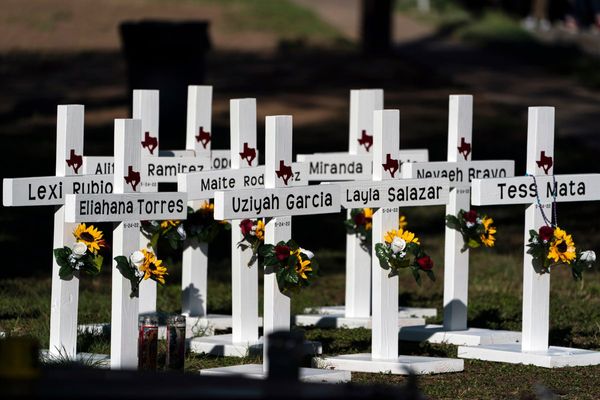Dalang Dkhar has not had a job in 12 years but she is on call every single day.
As a lifelong carer to her 14-year-old son Sydney, who is autistic and does not speak, she says the role takes "everything" from her.
"[I have] become an extension of what he needs in life, because if I'm not there to do it as his carer, there's no one else to advocate for him," Ms Dkhar said.
She said Sydney had been through trauma at school which changed him as a child. He had since been at home, where she looked after him.

"It's not only about physically taking care of someone, giving them medicines, or making sure they're fed. You are responsible for the quality of life of a human being," Ms Dkhar said.
"You give yourself mentally, emotionally, in every way possible depending on the diagnosis ... my son doesn't sleep most nights, and I stay up with him."
She said she absorbed everything her son went through - his distress and distrust - and suffered from poor mental health like most unpaid carers do.

Ms Dkhar said carers could be parents looking after disabled children, young people looking after chronically sick family members, or people caring for their spouse, sibling or parent, or a combination of these instances.
There are more than 58,000 other Canberrans in her position according to Carers ACT, a non-profit supporting unpaid carers.
"[Carers] end up with anxiety, depression, trauma, with long-term chronic conditions," Ms Dkhar said.
"If the government can meet us with the right mental health care, we can do our job better ... no one understands that.
She added: "People think, 'Oh, you're the person who helps the person who needs care', but we do so much more'."
Ms Dkhar said her some of her carer friends had been through divorces while others had been diagnosed with fibromyalgia.
Unpaid carers are 'invisible'
Carers ACT has called on the next ACT government to remove barriers for unpaid carers, improve their mental health outcomes and include them in decisions that would affect their lives.
"We're talking about people who are available, 24/7 for their loved ones, stepping in when the services can't, the emotional, physical and financial impact on carers can be immense," chief executive Lisa Kelly said on Monday.
"Many carers experience higher rates of mental health, physical insults and social isolation. Yet for too long, our carers have been invisible in the types of systems they interact with every day."

Their eight elections asks included introducing a Carer Recognition Card, a mentoring program for young carers and increased funding for preventative mental health services for carers.
Ms Dkhar said the "identity card" would help her be taken seriously and have a say in her son's needs in meetings with hospital workers or the National Disability Insurance Scheme.
"They just see me as a mum. But if I could show them I'm a carer, it'd make them recognise me in a different role [as an expert]," she said.
"When we have the card I'll actually wear it [with a lanyard]. I'll be so proud because it'll be like for the first time, all my hard work, all my commitment of 12 years, is actually recognised formally, because no one knows my son better than I."
Are you an unpaid carer?

Ms Dkhar, who is pursuing a PhD in unpaid caregiving, also said there were migrants and people from culturally and linguistically diverse (CALD) backgrounds who didn't know they were carers.
She said such carers saw their role as their "duty" or "obligation" and were unaware they could ask for support from organisations like Carers ACT.
"A lot of people find it very difficult to identify themselves and say, 'yes, I'm a carer'," Ms Dkhar said.
"When they don't identify as carers ... they become very invisible and end up really suffering from burnout because they're doing it alone."
Carers ACT put forward the following proposals
- Carer Recognition Card
- Wellbeing and respite packages for carers
- Land for a carer wellbeing and respite centre
- Young carer mentoring program
- Review of the Mental Health Act
- Carer bereavement counselling
- Integrated mental health centre
- Dedicated mental health prevention funding







